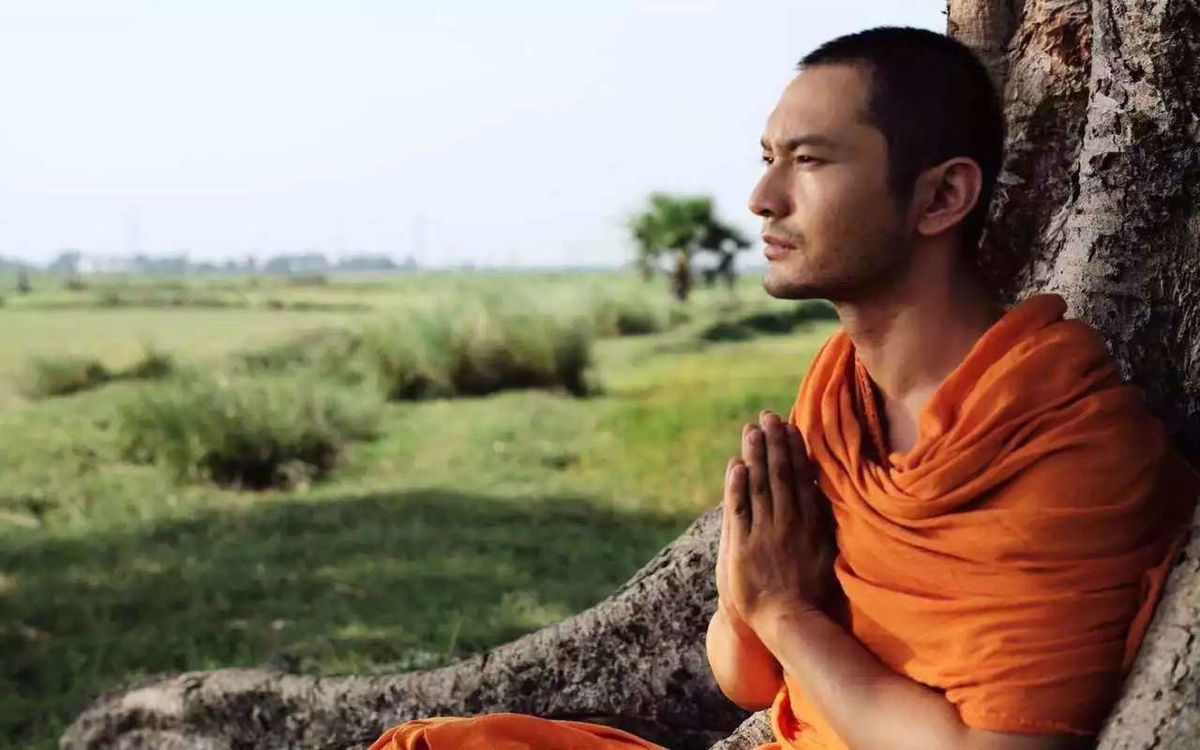- Bollywood soundtrack entertains Indian and Chinese presidents at Beijing dinner
- Pranab Mukherjee and Xi Jinping tout film co-productions for political understanding
- Chinese-language film Xuanzang tells of the spread of Buddhism to China from India

Sino-Indian co-production Xuanzang tells of the spread of Buddhism to China from India.
When Indian Prime Minister Narendra Modi met with President Xi Jinping in May last year, the two leaders inked an agreement that they hoped would kickstart a new filmmaking relationship between the two Asian giants.
Now, a year later, Pranab Mukherjee, president of the world’s largest democracy, is on a four-day official visit to China, which is ruled by the Communist Party, reiterated that more filmmaking cooperation between India and China, could lead to better “political understanding.”
“In a digital age, joint film productions could be useful instruments for creating positive perceptions among our people,” President Mukherjee said in Beijing on Friday.
Music from Indian director Raj Kapoor’s Awara, and other Bollywood hits with an older following in China, played in the background as Presidents Mukherjee and Xi dined together, according to reports.
For some Chinese in President Xi’s generation, select Indian films from the 1950s and -60s provided a colorful alternative to staid Communist propaganda films.
Following Xi’s agreement with Modi last year, three Sino-Indian co-productions have gotten going, including Kung Fu Yoga starring Jackie Chan, Buddies In India (大闹天竺), starring star comic Wang Baoqiang of Lost in Thailand fame.
It’s easy to see why the first film made off the back of the agreement was Xuanzang, an epic charting the eponymous 7th century Chinese monk’s overland journey to India.
The famed monk played a crucial role in spreading Buddhism throughout Asia after he returned to Tang Dynasty China with hundreds of Buddhist texts that were then translated from Sanskrit into Chinese.
Xuanzang is best-known in China because of the classic Journey to the West, a 16th century novel based on his voyages that has been made into countless television series and feature films.
The narrative also neatly ticks a number of political boxes for both China and India. The film’s director, Huo Jianqi, is matter-of-fact about how he became involved in the project.
“A lot of commercial films based on Journey to the West have been made recently because of the ‘One Belt One Road’ concept” Huo told China Film Insider, referring to Xi’s initiative to revive business along ancient Silk Road trade routes. “For Xuanzang, we wanted to present something a little less commercial for the audience.”
Huo allowed: “I’m part of China Film Group’s team, and we’re a state-run organization. They asked me to do it. That’s how it started.”
The fifth-generation director is best known for his 1999 film Postmen in the Mountains, winner of the Special Jury Award at the International Film Festival of India in New Delhi in 2000.
Though not a Buddhist himself, Huo said he finds the story fascinating and was interested in untangling the Xuanzang character depicted in Journey to the West from the real-life historical figure.
The meandering script, which follows Xuanzang’s 19-year journey over 30,000 miles, was written by Zou Jingzhi, who also wrote the screenplay for director Zhang Yimou’s critically acclaimed Coming Home, starring actress Gong Li.
The film was made over a year, shooting exteriors in the heat of India and China’s far West, in Xinjiang and Gansu, and interiors at the giant sound stages at Hengdian outside Shanghai and Huairou near Beijing.
“Forget about how hard it was for Xuanzang 1,300 years ago,” Huo said about the difficulty of filming in Xinjiang’s Taklamakan desert. “It’s still incredibly difficult to travel that road today. The natural environment out there is harsh, with a very cold winter, extremely hot summer. Xuanzang’s difficulty was our difficulty.”
While language barriers and a bout of food poisoning threw up some obstacles for Huo, the director said he was impressed by the professionalism of the Indian crew and actors provided by co-production partner Eros International.
Xuanzang was made in Chinese and released simultaneously in both the countries on April 29, with the Indian version dubbed into Hindi. Though the film struggled at the box office, Hou says that was never his concern.
“We didn’t make the film in order to make money,” Hou said. “We wanted to bring to life a piece of history that shared by both our countries.
—Additional reporting Chet Leung.





